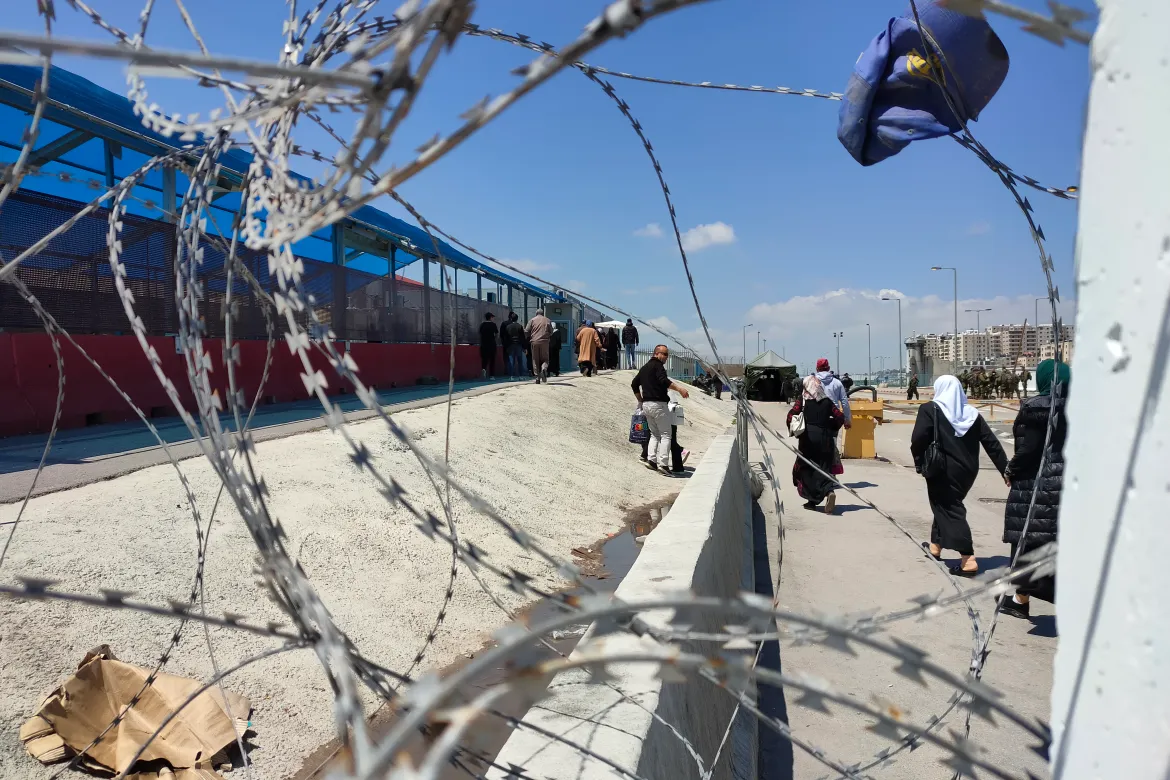Israel allows certain Palestinians from the occupied West Bank to travel to the occupied East Jerusalem during the Muslim holy month of Ramadan.
Hundreds of Palestinians crossed the Qalandiya military checkpoint on their way to the Al-Aqsa Mosque in occupied East Jerusalem for noon prayers on the fourth and potentially final Friday of the Muslim holy month of Ramadan.
At other checkpoints located throughout the occupied West Bank, many more people followed suit.
Women of all ages and Palestinian men under 12 and over 55 were permitted through the terminal in the occupied West Bank without a difficult-to-obtain military permit, all under the careful eye of Israeli soldiers.
But simply getting through the checkpoint is an achievement.
Wafaa Ramaha, 60, entered a room within the military checkpoint from one of the rotating iron security gates, where she discovered hundreds of other Palestinians waiting to pass.
Ramaha was from the occupied West Bank city of Nablus in the north. She endured a difficult 75-minute journey on public transit before reaching the checkpoint.
She claimed, “I discovered severe overcrowding inside the checkpoint.” She told Al Jazeera, “I hope I will be able to get to Jerusalem before the end of Friday prayers because the procedures at the checkpoint are really difficult,” and that it was “important that we go to pray at Al Aqsa Mosque because it is for all Muslims and Arabs.”
Those attempting to pass through the checkpoint must do so through four or five different entry points. Ramaha, though, was still holding out for her chance to cross the street when the call to prayer for noon rang out. She was unable to arrive on time.
Others were barred away owing to age limits or for “security reasons”. After Israeli forces barred Majida Al-Hajj Hussein, 47, of Nablus from reaching the checkpoint, she was forced to leave with her two children.
While Israeli security officers at the crossing would only let male youngsters under the age of 12, Hajj Hussein believed that her son may pass as long as he was still listed on her identity card.
“I travelled a great distance by car, all the way from Nablus. When I first arrived, it took me some time before I could find the proper entry, she stated. Since the start of Ramadan, this is the first time that my circumstances have permitted me to visit. I got to one
Others were barred away owing to age limits or for “security reasons”. After Israeli forces barred Majida Al-Hajj Hussein, 47, of Nablus from reaching the checkpoint, she was forced to leave with her two children.
While Israeli security officers at the crossing would only let male youngsters under the age of 12, Hajj Hussein believed that her son may pass as long as he was still listed on her identity card.
“I travelled a great distance by car, all the way from Nablus. When I first arrived, it took me some time before I could find the proper entry, she stated. Since the start of Ramadan, this is the first time that my circumstances have permitted me to visit. I got to one
Others were barred away owing to age limits or for “security reasons”. After Israeli forces barred Majida Al-Hajj Hussein, 47, of Nablus from reaching the checkpoint, she was forced to leave with her two children.
While Israeli security officers at the crossing would only let male youngsters under the age of 12, Hajj Hussein believed that her son may pass as long as he was still listed on her identity card.
“I travelled a great distance by car, all the way from Nablus. When I first arrived, it took me some time before I could find the proper entry, she stated. Since the start of Ramadan, this is the first time that my circumstances have permitted me to visit. I got to one.
Others were barred away owing to age limits or for “security reasons”. After Israeli forces barred Majida Al-Hajj Hussein, 47, of Nablus from reaching the checkpoint, she was forced to leave with her two children.
While Israeli security officers at the crossing would only let male youngsters under the age of 12, Hajj Hussein believed that her son may pass as long as he was still listed on her identity card.
“I travelled a great distance by car, all the way from Nablus. When I first arrived, it took me some time before I could find the proper entry, she stated. Since the start of Ramadan, this is the first time that my circumstances have permitted me to visit. I got to one.
Hajj Hussein compared the processes within the checkpoint to a protracted, confusing maze. “There are numerous gates and halls. We are requested to stop, and after the security check, you are unsure of your status. She told Al Jazeera that the soldiers were arbitrary.
She found it challenging to turn around. “Because my son lacks an identity card and I am unsure of how to leave him alone when I leave, it is difficult for me to come here and then return. Being unable to access Al-Aqsa Mosque when we are on our land makes it tough for me. This is out of my control.
Others, though, succeeded. The Jordan-administered Waqf or Islamic Trust, which maintains the complex, registered 250,000 worshippers. Israeli police estimated that 130,000 people entered the site on Friday, without specifying how many were from the West Bank.
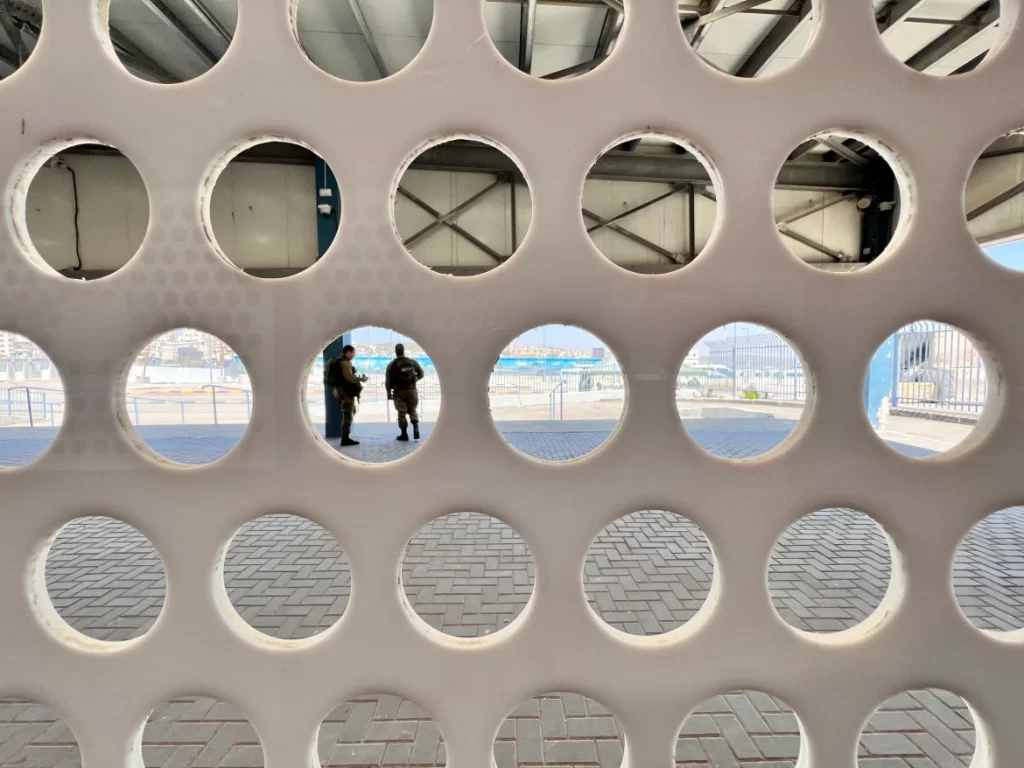
Hundreds of Palestinians travelled past the Qalandiya military barrier on the fourth and potentially final Friday of the Muslim holy month of Ramadan on their way to the Al-Aqsa Mosque in Jerusalem for noon prayers. (Jehad Barakat for Al Jazeera)
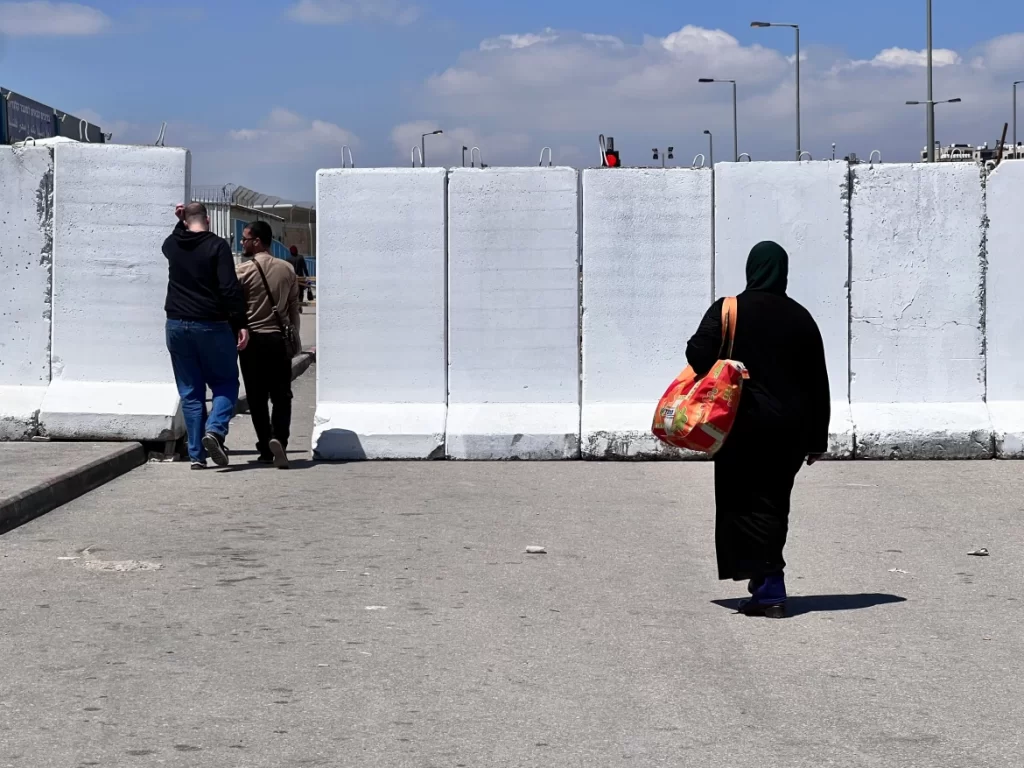
Israel let Palestinian men aged 12 and older, as well as women of all ages, enter Jerusalem on Fridays during Ramadan this year without the need for a cumbersome military permit. (Jehad Barakat for Al Jazeera)
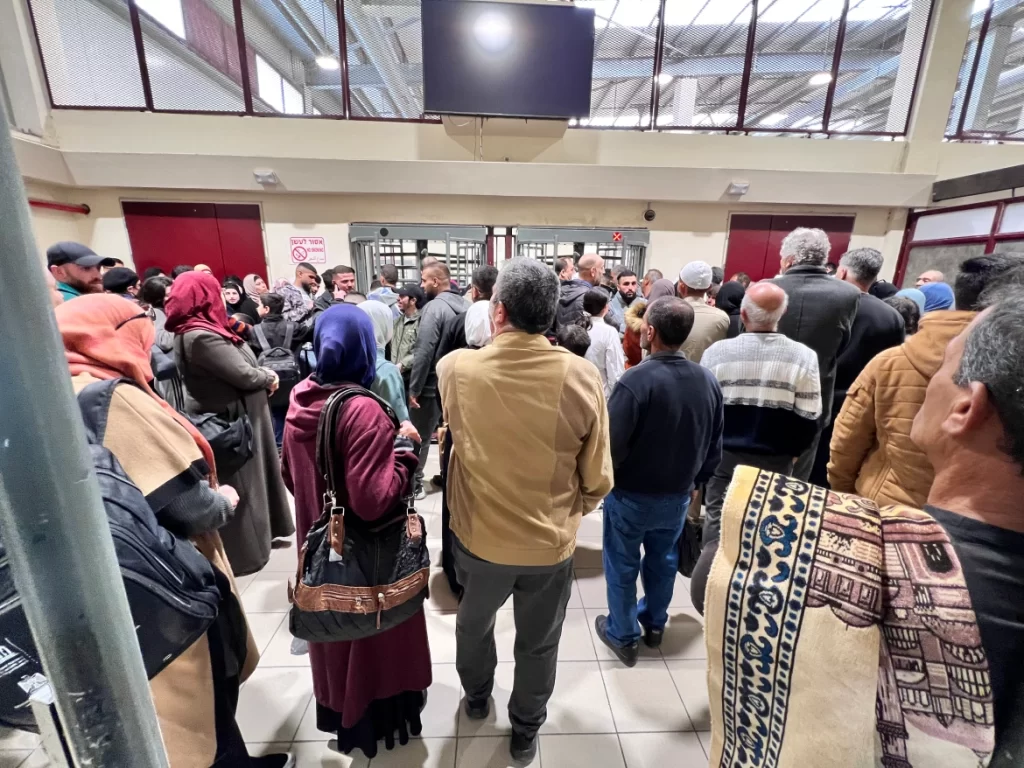
Many times, Palestinians from all over the West Bank leave their houses early in the morning to get a place in the long lines that form as a result of thorough screenings by Israeli authorities. (Jehad Barakat for Al Jazeera)
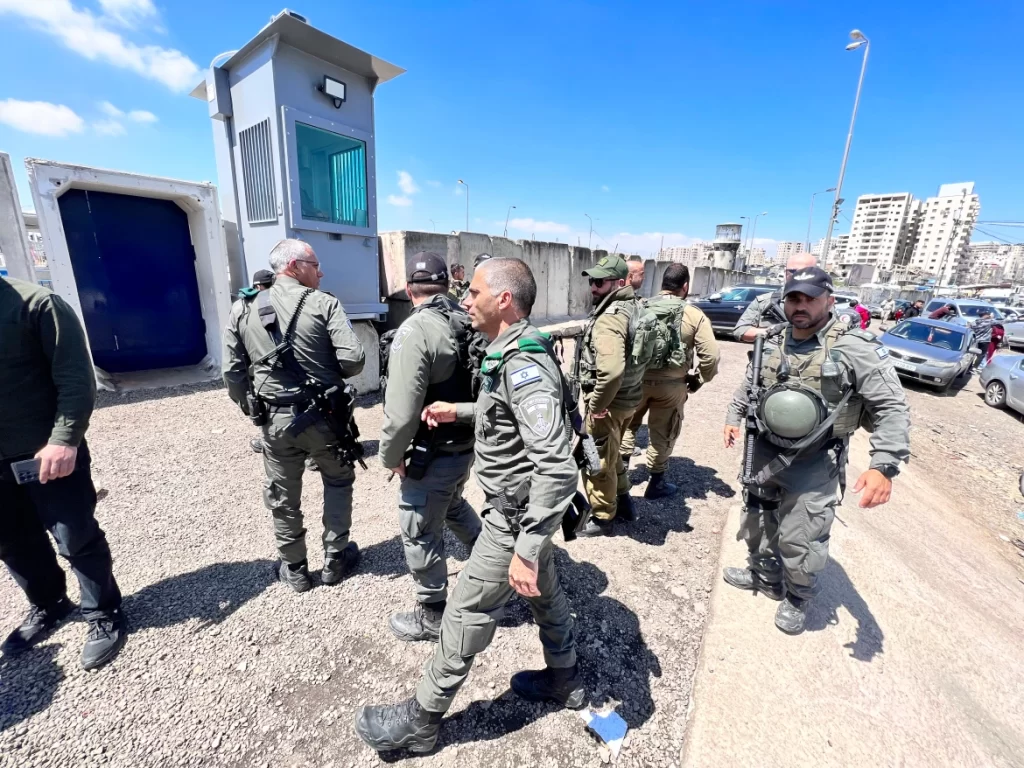
The three main checkpoints—Zaitouna in al-Ezariya, Qalandiya between Ramallah and Jerusalem, and Checkpoint 300 between Bethlehem and Jerusalem—must be used by the majority of Palestinians entering Jerusalem. (Jehad Barakat for Al Jazeera)
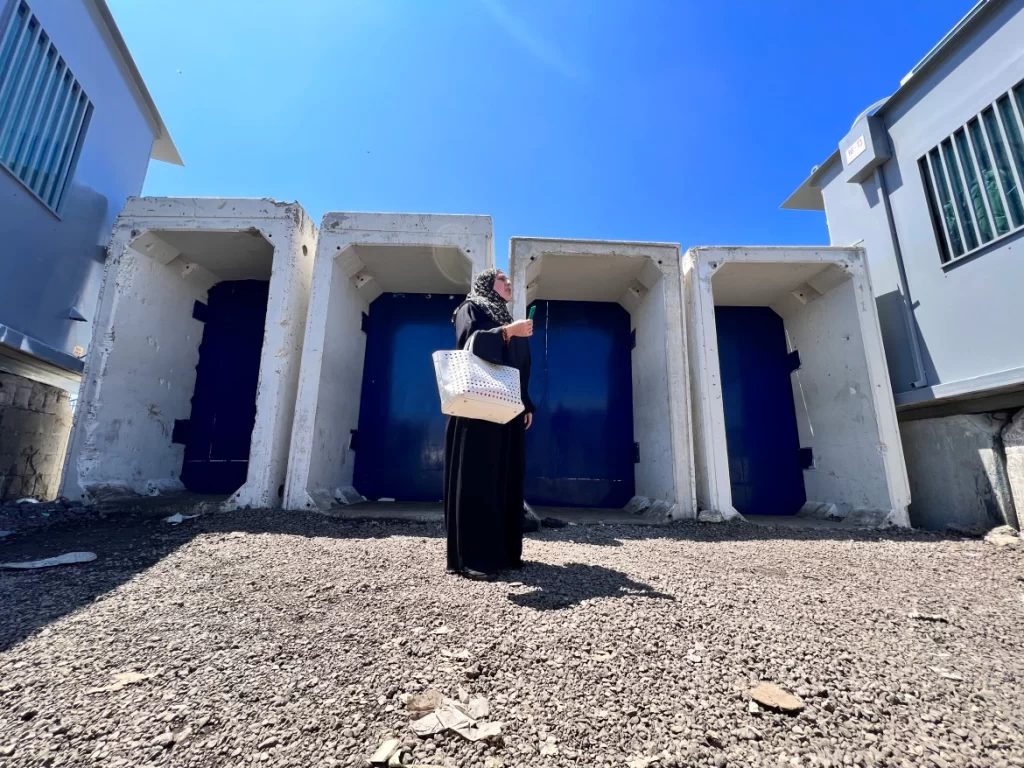
Many Palestinians who pass through the checkpoint on their route to the Al-Aqsa Mosque complain about the maze of passageways and the numerous complicated processes. (Jehad Barakat for Al Jazeera)
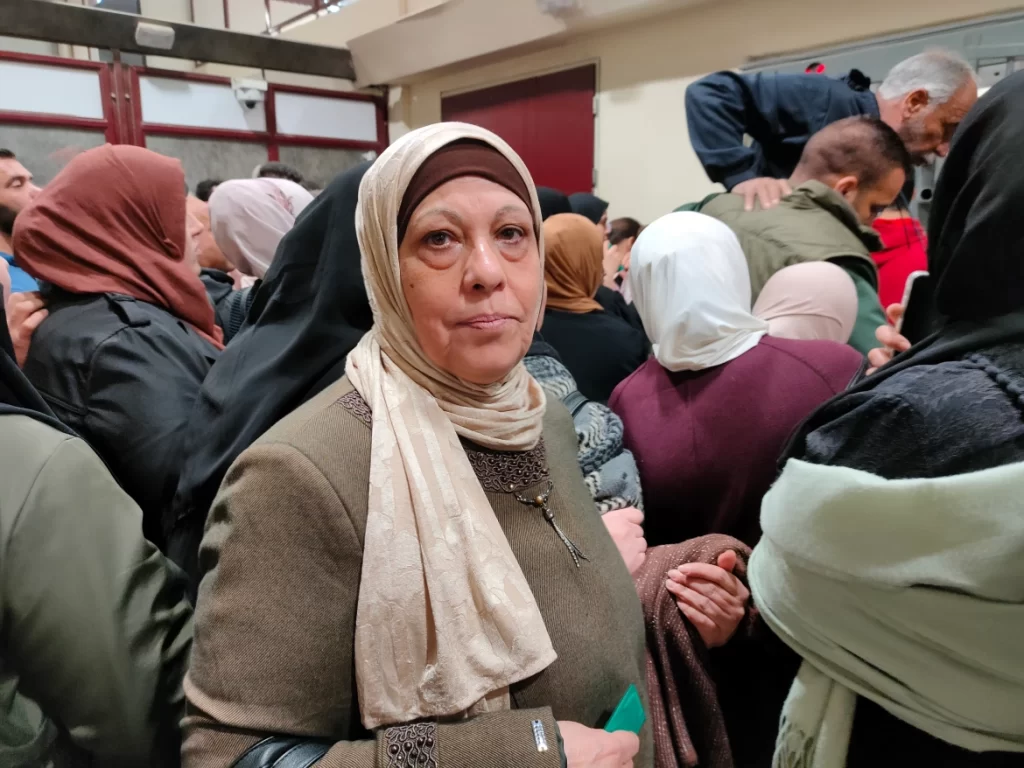
In order to get to Al-Aqsa Mosque, Wafaa Ramaha, 60, entered a room inside the military checkpoint. She was unable to arrive in time for midday prayers. (Jehad Barakat for Al Jazeera)
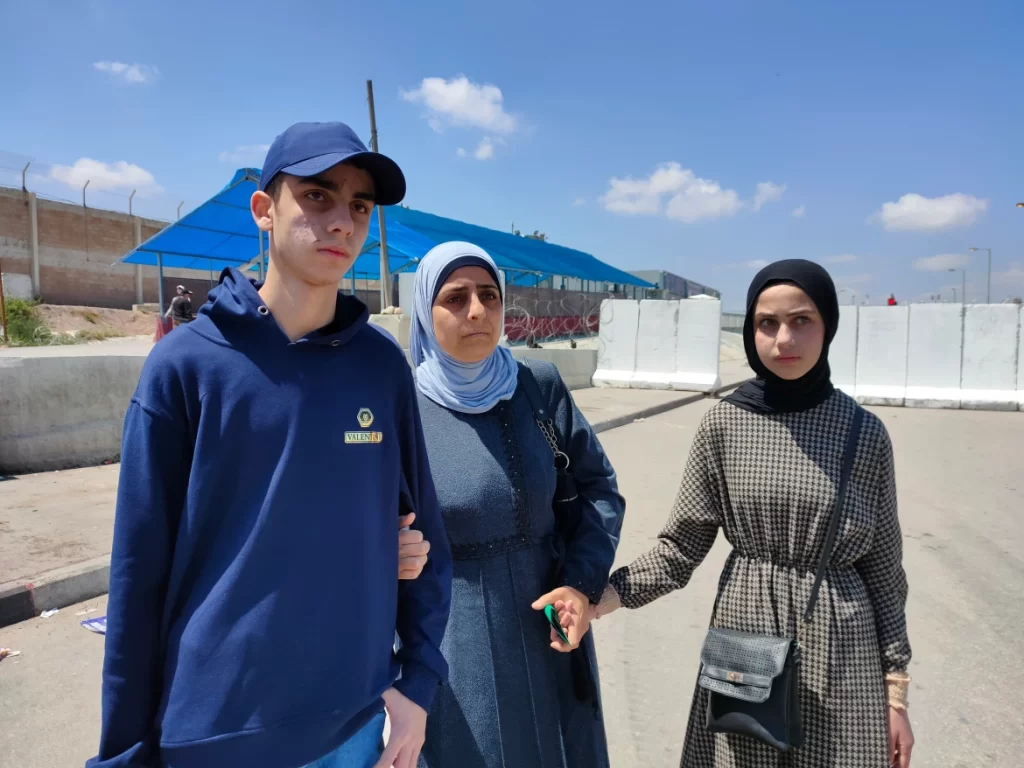
After Israeli police blocked Majida al-Hajj Hussein, 47, of Nablus from reaching the checkpoint, she was forced to flee with her two children. (Jehad Barakat for Al Jazeera)
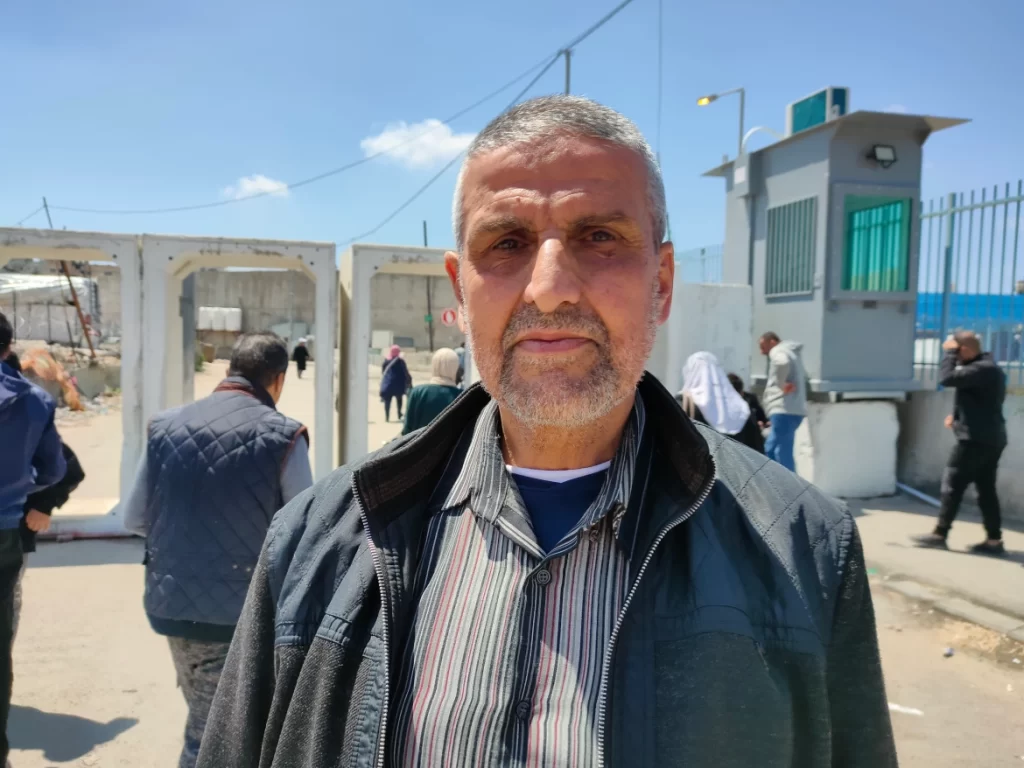
After Israeli police blocked Majida al-Hajj Hussein, 47, of Nablus from reaching the checkpoint, she was forced to flee with her two children. (Jehad Barakat for Al Jazeera)
